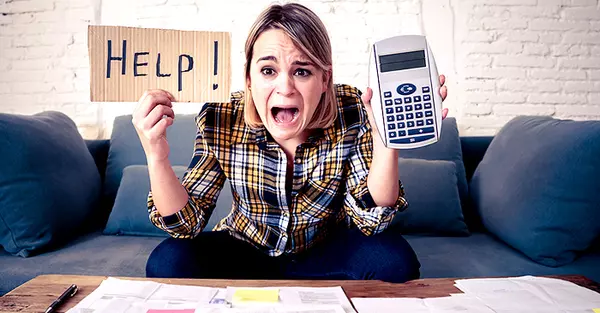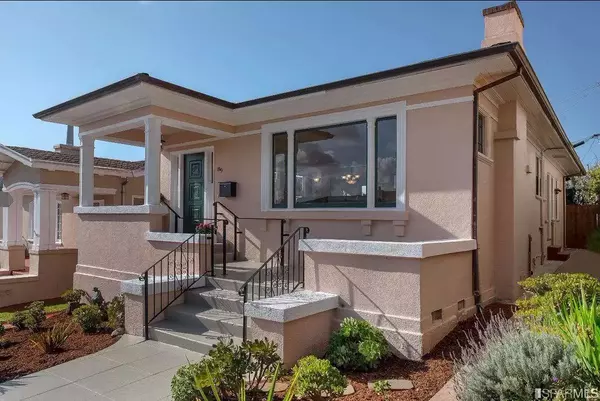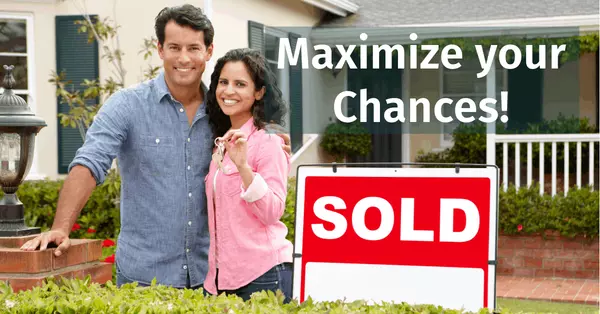
Challenges of Selling and Buying at the same time
Selling your home and buying a new one at the same time can be an exciting and stressful experience. While it's possible to sell your home and use that sale to purchase another house, it's also a challenging task that requires careful planning and execution. In this blog, we'll explore the challenges of selling and buying at the same time for both sellers and buyers and how to navigate the mortgage process during this time.Challenges for Sellers:One of the biggest challenges for sellers is timing. You need to sell your existing home before you can make an offer on a new one, which can be tricky. If you sell your home too quickly, you may not have enough time to find a new one. On the other hand, if your home takes too long to sell, you may miss out on your dream home.Another challenge for sellers is the pressure to accept an offer that may not be up to your standards, simply because you need to sell quickly. This can be especially difficult if you're buying in a competitive market where homes are selling quickly.Challenges for Buyers:For buyers, the biggest challenge is finding the right home while you're also trying to sell your existing one. You may have a limited window of time to find a new home, and you may need to make an offer quickly to be competitive.Additionally, buying a home before you've sold your existing one can put you in a financial bind, as you'll likely need to make two mortgage payments until you're able to sell your existing home. This can be a significant financial strain, especially if you're not prepared for it.Navigating the Mortgage Process:If you're selling and buying at the same time, you'll need to navigate the mortgage process carefully. One option is to take out a bridge loan, which is a short-term loan that allows you to make a down payment on your new home while you're still waiting for your existing home to sell. Once your existing home sells, you can use the proceeds to pay off the bridge loan.Another option is to apply for a contingent mortgage, which means that your mortgage is contingent on the sale of your existing home. This can be an excellent option if you're confident that your home will sell quickly, but it can also be risky if your home takes longer to sell than anticipated.In conclusion, selling and buying at the same time can be a challenging experience, but it's possible with careful planning and execution. As a seller, you'll need to plan your timing carefully and be prepared to make tough decisions. As a buyer, you'll need to balance finding the right home with the pressure to act quickly. Navigating the mortgage process can also be challenging, but there are options available to help you manage the financial aspects of this process. With the help of a skilled real estate agent and mortgage professional, you can successfully sell and buy a home at the same time.

Don’t Have Much Saved for a Down Payment? These Options May Help You Buy a Home No Matter What Your Savings Account Looks Like
In a perfect world, as a homebuyer, you would have 20 percent of the purchase price of your home set aside for a down payment. But we don’t live in a perfect world, and while it’s certainly nice to have a sizable down payment at the start of your home search, it’s by no means a requirement. A recent article from realtor.com outlined different strategies buyers can use to purchase a home, even if they don’t have a ton of money set aside for a down payment, including: Explore low down payment loan options. The government offers a number of low (or even zero!) down payment options, including USDA loans, FHA loans, VA loans, and HUD homes (homes owned by the U.S. Department of Housing and Urban Development that typically offer buyer incentives, including no or low down payment options). If you’re looking to buy a home with a small (or no) down payment, research these loan programs to see if you qualify. Pay private mortgage insurance (PMI) on a conventional loan. If you have some money saved for a down payment, you may be able to get a conventional loan for your home with private mortgage insurance. With PMI, you can put as little as 5 percent towards a down payment when you buy your home (sometimes even less!) and then pay a monthly insurance premium — typically 0.3 to 1.15 percent of your loan total — until you pay down your mortgage enough to reach 20 percent equity in your home. Get a gift. Lenders generally don’t want you to borrow money from loved ones for your down payment. But if someone gives you the money — without any expectation that you’ll pay it back — that’s a different story. If you’re lucky enough to have a friend, family member, or other loved one that’s willing to give you money to put towards your down payment, that gift could help you successfully buy a home. (Just make sure to ask your lender for the rules and requirements they have, such as a letter from the person stating it’s a gift, and how long you need to have the money in your own account before purchasing a home.)

There’s Good News and Bad News for Single Women Who Buy a House (But the Bad News Can Be Avoided…)
The good news for single women is that they outpace single men in terms of homeownership. According to the National Association of Realtors, as of February 2023, single women were 17% of all homeowners, while only 9% of single men own a home. The bad news is that single women don’t get as good of a return on their real estate investments as single men do, according to a recent study published in The Journal of The American Finance Association. It’s a long report, and not the easiest read, so let’s highlight a few of the key findings in plain language: It was a thorough, objective analysis. They analyzed over 50 million home sales in the U.S. between 1991 and 2017, focusing on 9 million transactions which they could specifically identify as a home being bought or sold by a single female or single male. Single men earn an average of 1.5% higher return per year. However, that’s only when they do not take into consideration that most buyers (male or female) purchase a home with a mortgage. Taking the “leverage” of a mortgage into account, males actually benefit from a 7.9% higher return over single women. On average, single women pay 2% more than a single male when they buy a house… …and sell it for 2% less than a male does when selling the house. Simply put, single men buy low and sell high, while single women buy high and sell low. Women were less likely to negotiate the price of a house down when negotiating with a seller, and would typically accept a lower price from a buyer for their home than a single male. It’s not that men choose better houses to buy. They attributed 45% of the difference in returns to the moment when the purchase or sale occurs, which isn’t related to men choosing a better house or doing more profitable home improvements during the course of owning a home. Single women lose about $20,800 in wealth on a house… The study found that the average loss was $1,600 in wealth accumulation per year, which grows to $20,800 over 13 years, which is the average amount of time most people live in a particular home. …which accounts for a 30% gap in overall wealth accumulation. Because real estate is typically the largest asset most people own, the difference in return creates a larger percentage gap in total wealth built over their lifetime. So, Should Single Women Just Not Buy a House at All?! All of that may sound like buying a house is a losing proposition for single women, but that’s not what this information is saying. In fact, they conclude by saying, “Finally, we emphasize that women may derive greater utility from home ownership despite earning lower financial returns.” Simply put, they’re saying that it’s not that single women don’t financially benefit from owning a home; it just shows that they haven’t fared as well as men when it comes to how much of a return they achieve. Why Does This Happen? The study stops short of digging into what factors might actually cause the differences between how and why men and women make different decisions, but two things that were clear causes: Single women aren’t as aggressive when making offers and negotiating on a house. They choose to list their house for less money than a single man would when selling. They also considered that it could be that single women either choose sub-par real estate agents, or that agents perhaps don’t give the same advice or service to single female clients, but felt there was no evidence to support this: “An important caveat to this analysis is that we can only rule out the influence of agent effects that are fixed across clients. The impact of agents may depend on the interaction between agents and the gender of their clients. For example, the same real estate agent may give different advice to male and female clients. Men and women may also differ in whether they follow the (good or bad) advice of their agents. Our observational data unfortunately do not allow us to examine the details of discussions between clients and agents, so we leave further study of the role of agents to future work.” Basically, it wasn’t possible for them to determine without further study. However, it’s highly unlikely that most real estate agents would treat single women differently than any other client. Agents don’t make decisions for clients; they act on their behalf and carry out their requests after giving them their best perspective and advice. Many clients opt to do things their agent doesn’t recommend, regardless of whether they’re married, single, male, or female. How to Avoid These Issues While there is never any way to guarantee how much much of a return you will make on a house you buy, there are two things this study show that you can do as a single woman to avoid making lower returns than single men: Negotiate harder when buying a house. List your house for more than you might be inclined to when selling, and don’t shy away from standing your ground on price during negotiations. Beyond that, while real estate agents aren’t likely to treat you any differently than a man, or give you worse advice, you should absolutely hire an agent who understands this is an issue and will deliberately try to help you overcome and beat these statistical odds! Just remember: they can only give you their best advice and act upon your direction. They can’t make the decisions for you. So, choose your agent wisely, but also choose to follow their best advice. The Takeaway: Single women outpace single men in terms of owning a home, but single men get better returns on their investment. It appears to happen at the point of purchase and sale. Single women tend to offer more when buying a house, and accept a lower offer when selling. Avoid doing those two things, and you should be able to avoid losing out on the gains other single women are missing out on.
Recent Posts










